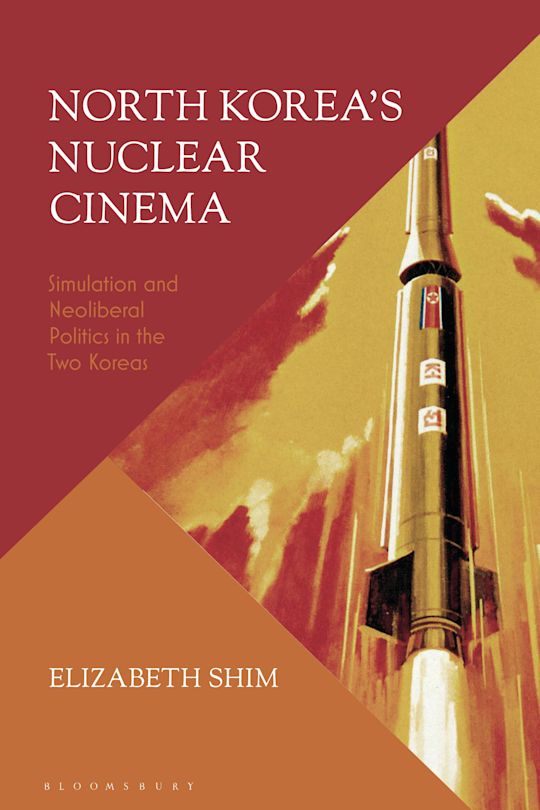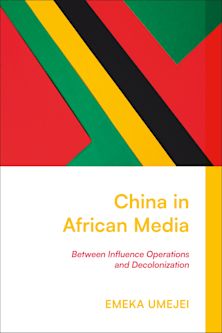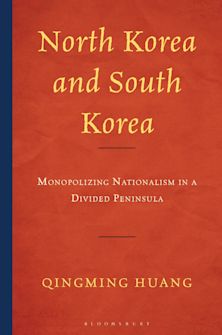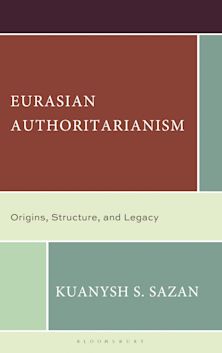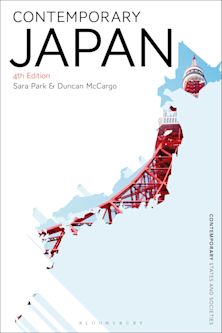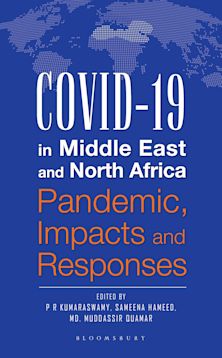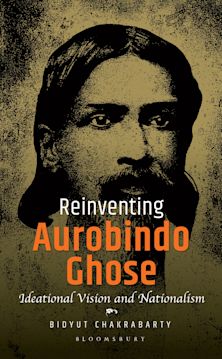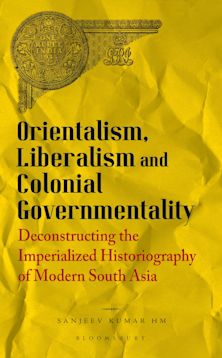- Home
- ACADEMIC
- Asia Studies
- Asian Politics, Government and International Relations
- North Korea’s Nuclear Cinema
North Korea’s Nuclear Cinema
Simulation and Neoliberal Politics in the Two Koreas
North Korea’s Nuclear Cinema
Simulation and Neoliberal Politics in the Two Koreas
You must sign in to add this item to your wishlist. Please sign in or create an account
Description
North Korea's Nuclear Cinema examines why and how North Korea has transitioned to an image-based nuclear power in the changing context of a post-Cold War world. What exactly is the North Korean nuclear threat? Why is North Korea engaging in hostilities when its erstwhile adversaries have offered a diplomatic exit ramp? Chapter by chapter, it explains how North Korea's footage-based nuclear politics is presented as military practice, but ultimately traces its lineage to cinematic propaganda, a tradition that blurs the line between image and reality.
By leveraging cinematic resources in place of physical military mobilization, North Korea continues to move international political actors with the mere suggestion of nuclear power. At a moment when North Korea is enhancing media representation, this book dives into a timely exploration of how the regime is projecting state power as South Korean televisual media challenges the North Korean communist spectacle that has held a captive audience for decades.
Table of Contents
North Korea's ideology of 'Juche'
Contemporary geopolitics
Inter-Korea relations
Chapter 2: North Korea weapons as simulacra
Deterrence as simulation
Hyperreality and the North Korean state
Chapter 3: North Korea cinema and television
Kim Jong Il, 'Genius of Film'
21st-century television, digital media and YouTube
Chapter 4: The rise of South Korean pop culture
Global media flows
The 'Korean Wave' in the post-Cold War context
Pop culture in North Korea
Chapter 5: Transnational Unification
Digital debris and North Korea's markets
Corruption
Simulacra and migration
Product details

| Published | 17 Oct 2024 |
|---|---|
| Format | Ebook (Epub & Mobi) |
| Edition | 1st |
| Extent | 192 |
| ISBN | 9781350259492 |
| Imprint | Bloomsbury Academic |
| Publisher | Bloomsbury Publishing |
About the contributors
Reviews
-
Elizabeth Shim is perhaps the most well-informed U.S. reporter on Korean politics, international relations, and media. Drawing upon her extensive knowledge and depth of insight, her book North Korea's Nuclear Cinema seamlessly weaves together modern North Korean history, international relations and politics, North Korean film history, and film interpretation. Its ambition sets it apart in the small but growing corpus of scholarship on North Korean cinema. Written in readable prose, the book is accessible to lay readers, who have interests in the reclusive nation, yet it has the requisite historical and theoretical depth to be relevant to Koreanists and to film historians.
David C. Oh, Editor of "Mediating the South Korean Other: Representations and Discourses of Difference in the Post/Neocolonial Nation-State"
-
Film, media and other forms of visual communication are central to life in the 20th and 21st centuries. Yet, they have rarely been explored in the context of North Korea's domestic politics and society as well as its foreign policy. In this intriguing book, Elizabeth Shim explains the many ways in which North Korea's regime uses and is influenced by its own visual narratives, as well as the importance of South Korean globally recognised culture in shaping both North Korean society and the country's leadership. This is recommended reading for anyone with an interest in the intersection of visual communication and North Korea and global politics.
Ramon Pacheco Pardo, Professor of International Relations at King's College London
-
A brilliant study of the role of media, technology, and propaganda in the shaping of modern North Korea. Shim's book puts North Korea's image and national identity at the forefront of the nation's behavior and asks questions about what that means for an increasingly interconnected future. As the world grapples with issues of propaganda and reality, North Korea's Nuclear Cinema offers lessons for students and policymakers alike.
Mitch Lerner, Director of the East Asian Studies Center, The Ohio State University

ONLINE RESOURCES
Bloomsbury Collections
This book is available on Bloomsbury Collections where your library has access.









